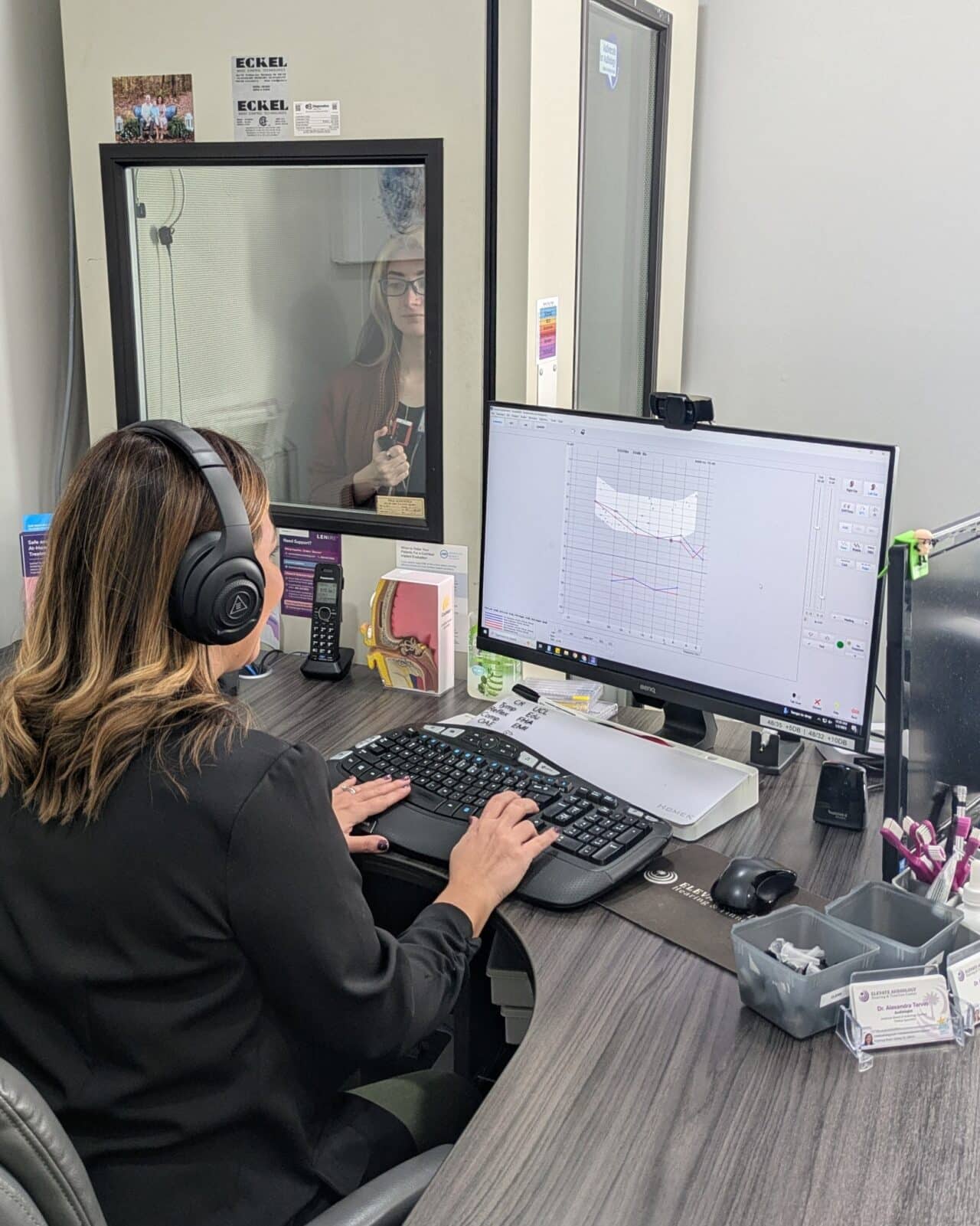Getting to Know You
Purpose: To learn about what prompted you to come see us for a hearing evaluation and your needs and experiences regarding hearing and communication in your personal and occupational life. We also seek feedback directly from a family member that we ask join you to your appointment. We will review questionnaires and any follow-up questions to ensure we understand your history.
**Please bring a close relative (spouse, adult child, etc.) to your appointment to get the most out of our time together. A support network is invaluable.
What Does a Hearing Test Measure?
An audiologist uses a hearing test to measure your type, degree and configuration of hearing loss. An audiology evaluation consists of a series of one or more of these tests. Your audiologist will use your test results to create a treatment plan for your unique hearing loss.
Who Should Have Their Hearing Tested?
An audiology (or hearing) evaluation can benefit patients of all ages, even those who do not show signs of hearing loss. Experts recommend having your hearing tested every 10 years until age 50. For those 50 and older, you should visit your audiologist for a hearing exam every three years.
Why Should You Have a Regular Hearing Test?
Hearing loss is a progressive condition that often develops slowly. Many people are not aware of a change in their hearing because they adjust to the loss over a long period of time. Studies indicate that it takes seven years, on average, for a hearing impaired individual to seek treatment.
Take the First Step Toward Treating Your Hearing Loss
An audiology evaluation should be the first step for anybody who suspects a loss of hearing; the sooner it is diagnosed, the more successful treatment will be. Early detection means more options for you, your partner or a loved one with hearing loss.
The Consequences of Untreated Hearing Loss

When left untreated, hearing loss can damage your physical health, emotional well-being and professional success. This includes:
- Hearing aids decrease listening (related) fatigue.
- Research indicates a two to three times increased risk of falls in older adults, with even mild untreated hearing loss.
- Hearing aid use can improve working memory performance in adults, compared to not using hearing aids.
- Adults with untreated hearing loss are more likely to report emotional loneliness/a lack of perceived emotional support.
- Wearing hearing aids improves social engagement/activity amongst adults with hearing loss.
Many physicians believe you should make audiology evaluations a routine part of your overall health care, just like regular vision exams and dental checkups. Hearing tests are quick, painless and provide immediate results.
What Are the Different Test You Complete?
Purpose: Determine the health of the outer, middle, and inner ear system through a thorough diagnostic hearing examination.
Otoscopy
We use an otoscope to visualize your outer ear and ear canal and remove any wax, if necessary. You can see inside your own ear with video otoscopy!
Audiometry
What we like to call the “boring beeps”. It’s a standard measurement to identify the type (conductive, sensorineural, or mixed), shape, and degree of your hearing loss (normal, mild, moderate, severe, and profound or a mixture of several based on frequency).
Speech evaluation
A variety of speech measurements to measure your speech understanding abilities in quiet and in noise at various volumes.
Immittance Evaluation
Depending on your history and various exam scores, it may be necessary to measure your eardrum movement and acoustic reflex pathways.
Education
If it is determined that you have a hearing difficulty and communication need, we will discuss options that are appropriate for you: hearing aids, other assistive listening devices, monitoring, etc.. You are as much a part of this decision as we are. We will learn more about your lifestyle, desires, and preferences and make recommendations to get you back to living your best life. We are HEAR for you! We will also make any appropriate referrals to other healthcare partners, if necessary.
Call Elevate Audiology at (864) 442-5555 for more information or to schedule an appointment.
